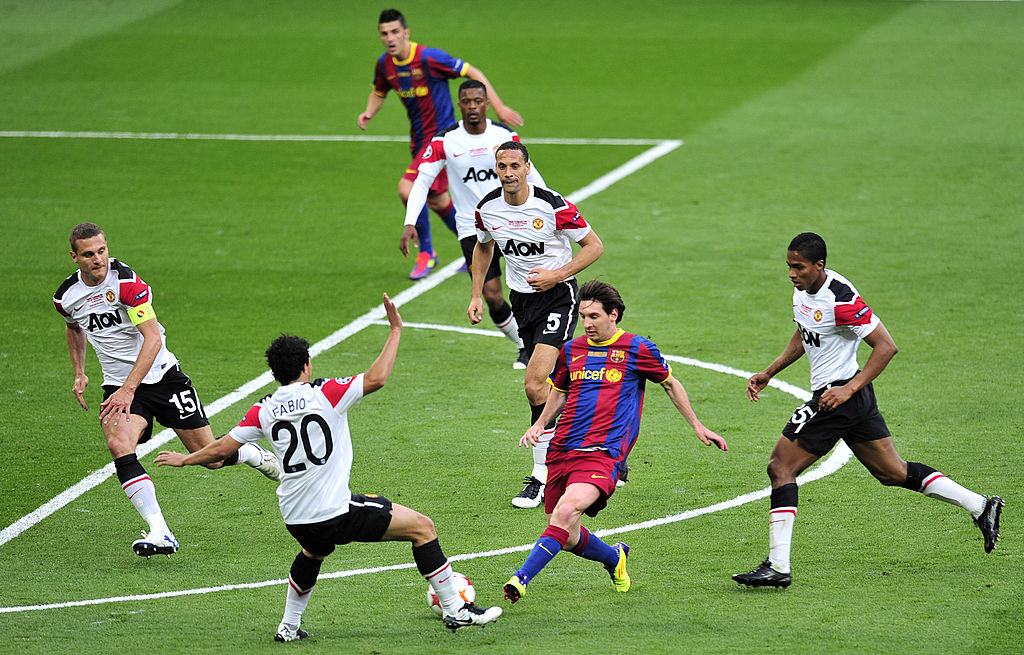In 2009, the Ballon d’Or top ten read as follows: Lionel Messi, Cristiano Ronaldo, Xavi, Andres Iniesta, Samuel Eto’o, Kaka, Zlatan Ibrahimovic, Wayne Rooney, Didier Drogba and Steven Gerrard. A list stacked full of talented players that would all have feasibly been awarded the Golden Ball during their careers if it weren’t for the dominance of the first two players listed.
Fast forward 15 years later, and the Ballon d’Or has lost its shine. The 2024 ceremony proved that there’s a serious derth of talent right now in world football. Where coaching methods and tactics have prevailed, individual brilliance and spontaneity have been quashed.
It’s a crying shame that Rodri, a defensive midfielder, won the 2024 Ballon d’Or. It’s not for the fact that Rodri has won the award – he was undeniably the best player in world football during the 2023/24 season, so clearly deserved it – but more so that it’s becoming harder and more difficult to celebrate the successes of attacking stars. The fact Lautaro Martinez, whose ability is a long way off of Eto’o’s, Ibrahimovic’s and Drogba’s, has placed seventh eptiomises that.
Gerrard is the closest player in the aforementioned top ten to being a defender, too, something he proved he’s incapable at during the Sven-Goran Eriksson years for England. Now, though, there’s Rodri and Dani Cavarjal both making the top four – where has it all gone wrong?
In modern day football, everything feels too constructed. Players are told where to stand, where to pass and what the most efficient route to goal is. While that has its benefits, there are certain drawbacks.
At its core, it attacks the very spirit of why kids around the world love playing the sport. Eight-time Ballon d’Or winner Messi, who ranked at no.1 in FourFourTwo’s list of the greatest footballers of all time, grew up on the streets of Rosario running rings around youngsters much older than him on cracked concrete, honing the impeccable dribbling skills we’ve all become accustomed to. Vinicius Jr does still display that innocence on occasion, but it’s not frequent enough.
On the outer layer of that core is the lack of risks players now take. Defence-splitting through-balls through the eye of the needle like Xavi, mazy dribbles from Iniesta, sheer determination from Rooney or Hollywood-style passes from Gerrard are all elements that have been lost over the years.

They don’t always work, but it’s the attempt and belief that it can work that inspires the younger generation – and ultimately what creates a better spectacle overall.
Granted, Pep Guardiola managed the two best clubs sides in world football in both 2009 and 2024, with players from his sides winning the Ballon d’Or as well. 15 years ago, though, Messi, Xavi and Iniesta were given much more licence to create, to enjoy doing things with a football that others can only dream about.
Now, there’s a focus on that word again: efficiency. Erling Haaland is clearly the best striker in world football, but rarely gets involved in play that isn’t around the 18-yard box. The Norwegian stands in the right areas to score goals. And that’s fine, but it’s a million miles from Drogba bullying defenders or Ibrahimovic producing a piece of skill that dazzles.
VIDEO: Why Man United HAD To Sack Erik Ten Hag
Admittedly the overall standard football is higher, with coaching standards having vastly improved and the intensity of games at a better level. There’s a shine to the game that has been tarnished in the process, however. Teams play in near-identical ways and players rarely produce moments of magic off the cuff – maybe it’s the nostalgia talking, maybe it’s unfair; likely, it’s neither.
In truth, football has become a little dry. Unfortunately, the 2024 Ballon d’Or highlights that.





